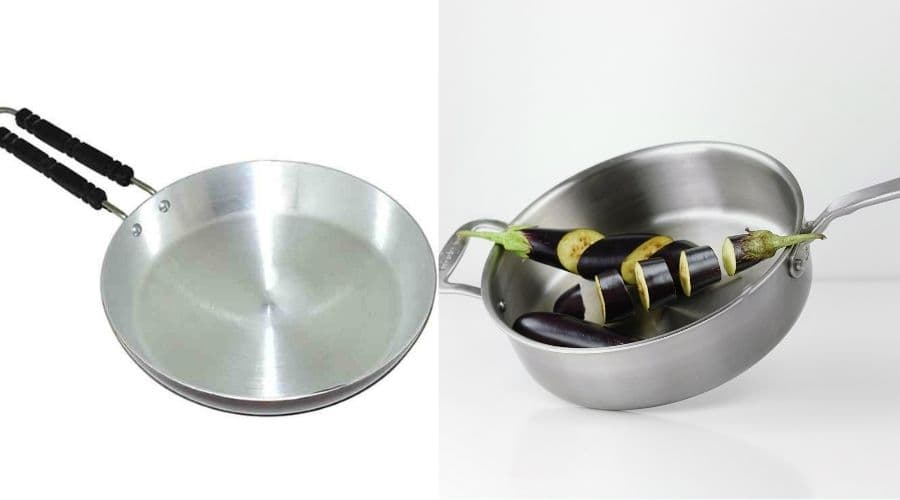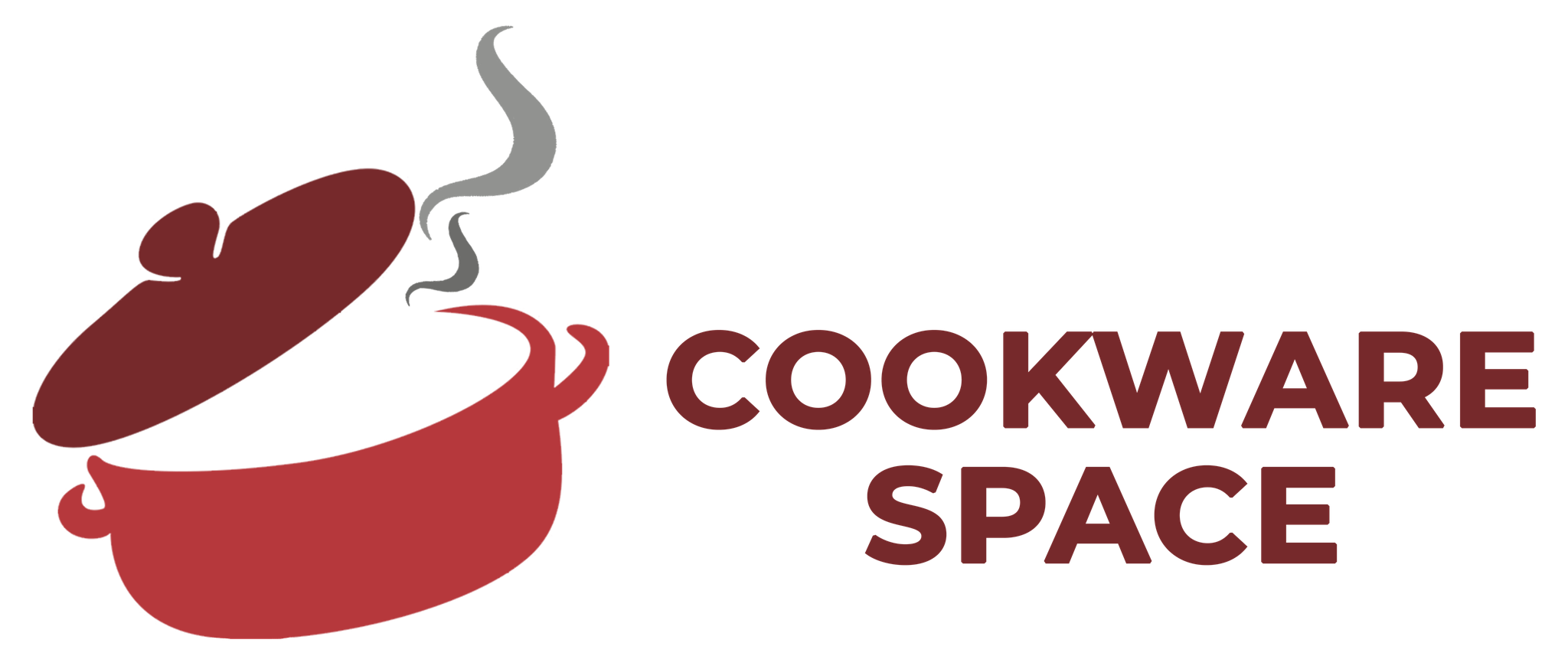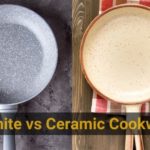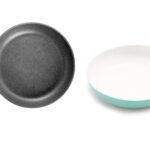Stainless Steel vs Aluminum Cookware – Which one to Choose?

Aluminum and stainless steel are the two most popular cookware materials among home chefs. Both types of cookware come with their own advantages and disadvantages, so it’s important to know the differences between them before making a choice.
In Short,
Aluminum cookware is known for its heat conductivity, meaning it heats up quickly and evenly. This makes it an excellent choice for a variety of cooking tasks. Aluminum is also lightweight and less expensive than stainless steel. However, aluminum can react to foods, which can cause a metallic taste in your food.
On the other hand, stainless steel cookware is heavier than aluminum, and its tri-ply construction helps it retain heat better. Its surface is nonreactive to acidic foods, making it more suitable for cooking such dishes. Additionally, stainless steel is more durable than aluminum and less prone to denting or scratching.
In this post, we’ll take a look at the pros and cons of both materials and help you decide which is right for you.
What is Stainless Steel Cookware?
Stainless steel is an alloy of iron, chromium, and nickel. It’s also known for being corrosion-resistant and durable. The chromium in stainless steel forms a layer of chromium oxide that protects the metal from rust and corrosion.
Stainless steel cookware has many benefits over other types of cookware.
Advantages of Stainless Steel Cookware
Here are some of the advantages of Stainless cookware.
Durable
First of all, stainless steel is a very durable material. It’s not as soft as aluminum, so it’s less likely to scratch or dent.
It can also withstand high temperatures, so it’s great for cooking at high heat. And, if you accidentally drop your stainless steel pan, it’s less likely to break than other materials.
Non-Reactive
Another advantage of stainless steel is that it’s non-reactive. This means that it won’t rust or corrode when it comes into contact with acidic foods like tomatoes or citrus fruits.
Stainless steel cookware is a good choice if you want to avoid any chemical reactions between your food and your cookware.
Induction Ready
If you have an induction cooktop, you’ll need to use cookware that’s compatible with it. Stainless steel is a great choice because it’s induction ready.
Not all materials are compatible with induction cooktops, so if you have one, make sure to choose stainless steel cookware.
Scratch resistant
Stainless steel is also scratch resistant and doesn’t require much care or special cleaning products, and it doesn’t rust.
If you use a metal utensil to stir or serve food from a stainless steel pan, it’s less likely to scratch the surface than other materials.
This is because stainless steel is a harder metal than aluminum, for example.
So, if you’re looking for cookware that will stand up to wear and tear, stainless steel is a good choice.
Dishwasher Safe
Another advantage of stainless steel is that it’s dishwasher safe. This means you can easily clean your cookware in the dishwasher without worrying about damaging it.
Not all materials are dishwasher safe, so if you’re looking for an easy way to clean your cookware, stainless steel is a good option.
Disadvantages of Stainless Steel Cookware
Heavier as Compared to Aluminum
One downside of stainless steel is that it’s a bit heavier than aluminum. However, it’s still lighter than cast iron.
So, if you’re looking for lightweight cookware that’s still durable, stainless steel is a good choice.
Slow to Heat Up
One disadvantage of stainless steel is that it’s a poor conductor of heat. This means that it takes longer to heat up than other materials, like aluminum.
So, if you’re looking for cookware that heats up quickly, stainless steel is not a good choice.
Uneven Heating
Another disadvantage of stainless steel is that it doesn’t heat up evenly. This is because the metal doesn’t conduct heat as well as some other materials, like aluminum.
This can lead to areas of your food being undercooked or overcooked.
So, if you’re looking for cookware that distributes heat evenly, stainless steel is not a good choice.
What is Aluminum Cookware?
Aluminum is a soft metal that’s lightweight and has a very high heat conductivity. It’s also very cheap, which makes it a popular choice for cookware.
One of the most popular types of aluminum cookware is hard anodized aluminum. This type is treated with a hard coating that makes it resistant to scratches and corrosion. It also has a non-stick surface, making it easy to clean.
Aluminum is a soft metal that’s lightweight and conducts heat well. It’s also affordable, making it a popular choice for cookware.
Aluminum cookware has many benefits over other types of cookware.
Advantages of Aluminum Cookware
Non-Stick
Normal Aluminum Cookware is not nonstick but if it is Hard Anodized then it is. This means that your food won’t stick to the surface of the pan, making it easy to cook and clean as well.
Even Heating
Aluminum is a good conductor of heat, which means that it heats up evenly. This prevents hot spots from forming and ensures that your food is cooked evenly.
Lightweight
Aluminum as compared to Stainless Steel cookware is a lightweight material. So if you are looking for cookware that is not too heavy, aluminum is a good choice.
Affordable
Aluminum cookware is one of the most affordable types of cookware that you can buy. It is a great option for those who are looking for a good quality cookware at an affordable price.
Disadvantages of Aluminum Cookware
Reactive
Aluminum is a reactive metal, which means that it can react with other food and change the taste and smell of your food.
However, Anodized Aluminum is nonreactive, the reason being that the anodizing process creates a barrier between the aluminum and the food.
Not Safe for Dishwasher Cleaning
Aluminum cookware is not safe for dishwasher cleaning as the harsh chemicals in dishwashing detergent can cause the aluminum to break down and leach into your food.
Not Induction Ready
Aluminum cookware is not induction ready as it doesn’t have a magnetic surface. This means that it cannot be used with induction cooktops.
So, which is better?
It really depends on what you’re looking for in cookware.
If you want something that heats up quickly and evenly, aluminum is a good choice.
But if you want something that’s more durable and less likely to scratch, stainless steel is a better option.
Aluminum is a popular choice for cookware because it’s lightweight and conducts heat well. It’s also very affordable, making it a popular choice for budget-minded consumers.
Stainless steel is a popular choice for cookware because it’s durable and non-reactive. It’s also easy to clean and maintain, making it a low-maintenance option for busy cooks.
However, stainless steel is also more expensive than aluminum, so it may not be the best choice for budget-minded consumers.
Ultimately, the best decision depends on your individual needs and preferences. So, be sure to consider all of your options before making a decision.
Do you want a combination of both Stainless Steel and Aluminum?
This is where Tri-ply Stainless Steel cookware comes in. As the name suggests, it is made of three layers.
Both Materials have some weaknesses and strengths as well. So to make the best cookware, manufacturers combine both materials.
The first and the outermost layer is stainless steel, the middle layer is aluminum, and the innermost layer is again stainless steel.
This combination of materials makes the cookware very durable as the aluminum layer prevents the stainless steel from corroding.
It also conducts heat evenly, making it a good choice for those who want even heating.
If you want the best of both worlds, you can get cookware that is made with a combination of both stainless steel and aluminum.
Tri-ply Stainless Steel Cookware is a good option as it has an aluminum core that conducts heat quickly and evenly, surrounded by two layers of stainless steel.
This type of cookware is usually more expensive, but it offers the best of both materials.
Is it better to cook with aluminum or stainless steel?
Aluminum is a good heat conductor, but it can react with acidic foods, potentially altering the taste. Stainless steel is more durable and resistant to warping, but it is a poor heat conductor and may not heat as evenly.
Which is safer aluminum or stainless steel cookware?
Both aluminum and stainless steel are safe for cooking, but they have different properties that affect their performance. Aluminum is a good heat conductor but can react with acidic foods, while stainless steel is not a good heat conductor but is highly durable and resistant to corrosion.
Conclusion
There are many different types of cookware on the market, and each has its own unique benefits and drawbacks.
When deciding which type of cookware is right for you, be sure to consider all of your options and choose the material that best suits your needs.
Both Stainless Steel and Aluminum have their own unique benefits, so be sure to weigh all of your options before making a decision.




